A practicing physician for over 20 years, guest author Madi Sinha gives us the perfect medical drama just in time for summer; when swimsuit and vacay season tend to make us consider body image and self care, engulfed with a tidal wave of confusing wellness trends.
At Least You Have Your Health is full of sharp humor, satire and suspense, a cautionary tale about the Goop-ification of women’s healthcare and education, and asks: when does our fascination with wellness become toxic? Sinha tackles such critical topics while also touching on ideas of race, class, beauty standards and “perfect” motherhood.The book follows Dr. Maya Rao, an Indian-American gynecologist on a mission to serve, educate and empower women—all while caring for her three small children and dealing with past trauma. After a breaking point at the hospital where she works, Maya is offered a job by Amelia DeGilles, well-to-do entrepreneur and socialite, who founded Eunoia Women’s Health. This concierge wellness clinic specializes in house calls for its elite clientele in the suburbs of Philadelphia. Maya stumbles into this world of wealthy and powerful women who dictate their own healthcare regimens with fancy vitamins, odd birthing ceremonies, expensive crystals, curative mind journeys, and other outlandish remedies that aren’t based in science. But it’s not long before she discovers that the practice, along with the high-end supplements and deep cleanses she’s been prescribing, may be more dangerous than any cure these women are seeking.
We talked with Madi Sinha about how the pandemic inspired At Least You Have Your Health, the very real brokenness of our US healthcare system, and what she’s currently reading.
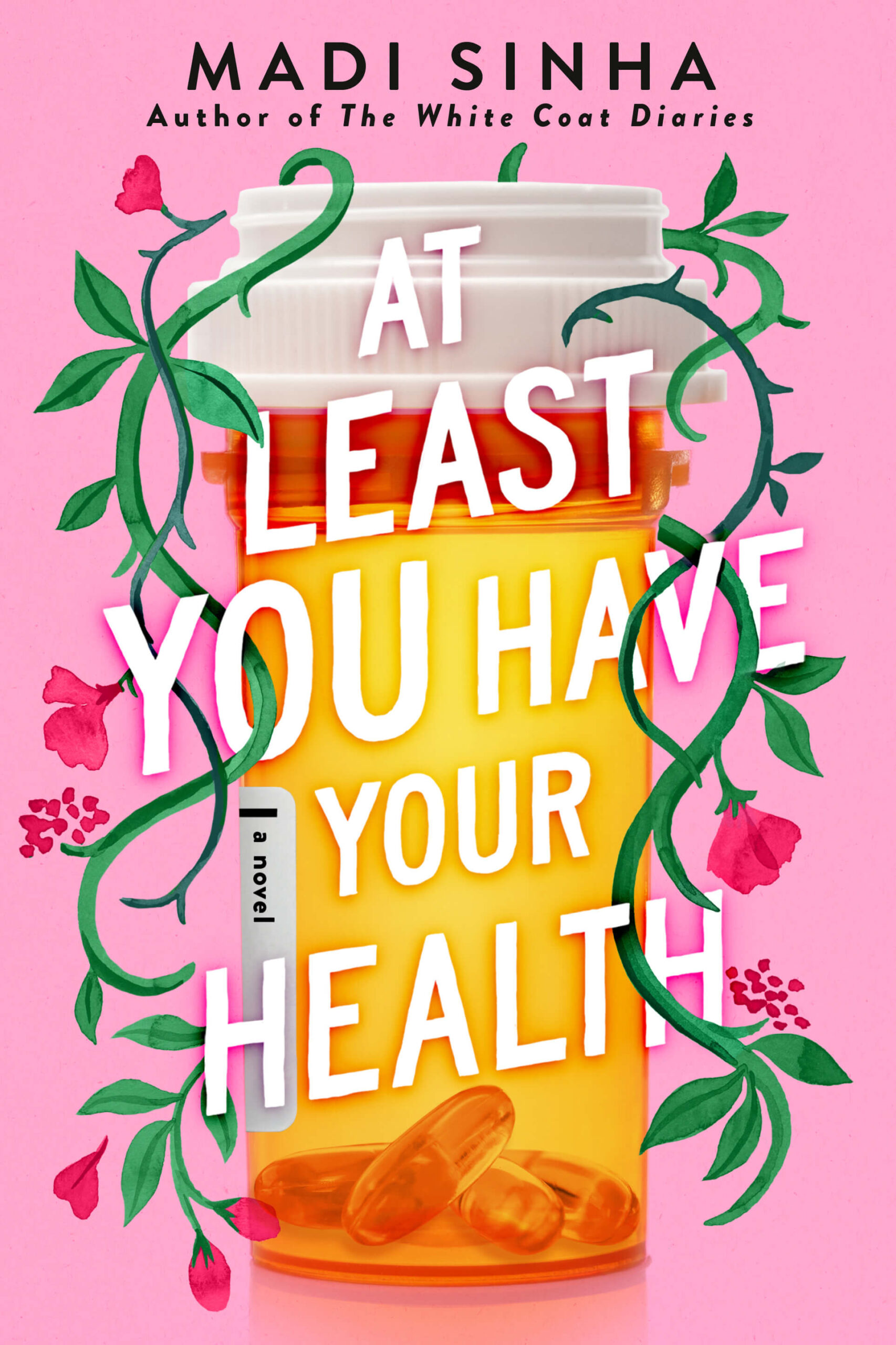
What inspired At Least You Have Your Health?
The pandemic. I wrote this book in 2020, and it was my way of processing everything that was happening in my life and in the world at large. As a doctor, there was of course the challenge of being in the medical field during the worst global health crisis in a century. As a parent, I also lived with the daily stress of having two young children—one of whom was in kindergarten—at home doing virtual school while also worrying if I would bring the virus home to them. At the same time, #MeToo and Black Lives Matter were sharpening our collective discourse on issues of gender and race. And while all of that was happening, the pandemic was laying bare the injustices of not only race, but its counterpart, class. We saw the virus decimate the lower classes while the wealthy were fleeing cities to ride out the pandemic in their beach-front mansions while trying to optimize their immune systems with ashwagandha and vitamin infusions.
I wanted to write about all of it—motherhood and feminism and race and class and healthcare—because I wanted to make sense of it all in my own mind.
What are a few things that surprised you when researching this novel?
I did a deep dive into the wellness industry while researching this book, and one interesting thing I learned is that there’s a language that’s unique to the industry. Marketers are trying to sell consumers this idea that there are two diametrically opposed forces in healthcare; there’s Big Medicine and there’s Wellness. Big Medicine is cast as this vaguely evil scientist bent on pumping “toxins” into your body for profit, while Wellness is depicted as a barefoot woman running joyfully through a mossy forest on her way to optimal health. I kept seeing the same adjectives in all the marketing material for these wellness companies, whether they were giant medical practices offering a range of scientifically-suspect care or a tiny, one-person internet outfit hawking vaginal tightening sticks: ancient, natural, healing, luminous, sacred, pure or purifying (this is a popular one when marketing treatments to women, implying our bodies are somehow “impure”), balancing, rejuvenating, detoxifying. The word “energy” is everywhere in wellness marketing too. Everyone wants to “balance your energy” but none of them are clear on what exactly that means.
As a doctor-turned-novelist, what are the ethics of writing about something like concierge medicine within a fictional setting?
I think it’s easier, for me personally, to discuss the very real brokenness of our US healthcare system via fiction, as opposed to writing an article or a nonfiction book about it. For one thing, I don’t have to worry about violating patient privacy because my “patients” are all fictional. That being said, I’ve practiced medicine for almost 20 years and I, like so many of my physician colleagues, am deeply concerned about the direction our healthcare system is headed. Healthcare, instead of being a human right, has been turned into a commodity, something that is increasingly only truly accessible to the wealthy. As we make our traditional healthcare system weaker by corporatizing it and overburdening doctors and nurses in the name of cost savings and efficiency, we are seeing the very wealthy turn to concierge medicine to fill their healthcare needs. They’re seated up in first class where they don’t have to worry about what’s going on with the rest of the country back in coach. We’re creating a two-tier system (three tiers, actually, if we include the massive number of uninsured people as their own tier), and the implications for health equity are dire.
Our healthcare system is in crisis. Burnout in healthcare professionals is at an all-time high; the national physician suicide rate is estimated to be TWICE that of any other profession. I personally know many physicians who have left the hospital to go work for insurance companies because clinical practice had become intolerable. The system chews up doctors and nurses and spits them out in the name of profit and expects that there will be no consequence. The consequence, of course, is that patients suffer. They feel their doctor or nurse doesn’t have enough time or empathy for them, that no one’s really listening to them. They’re afraid and feel powerless, and as a result they lose faith in their healthcare provider. No one wants this. Feeling like you can’t spend enough time with your patients and give them the level of care and attention they need is a leading cause of burnout for physicians and nurses. The problem is in our current system empathy cannot be monetized, and therefore it has no value. We treat healthcare like we treat any other industry, like we’re selling toasters or manufacturing sneakers. We completely leave the human element off the balance spreadsheet. And as long as the people in charge of our hospitals, medical practices, and insurance companies are not physicians, but business people tasked with reducing costs and maximizing profits, we will continue to have this problem.
As a major theme in your book, what is your response to: when does our fascination with wellness become toxic?
I think our fascination with wellness relates directly to our creeping distrust of traditional healthcare. I want to be clear: I’m not saying all wellness treatments are harmful or unscientific, or that there isn’t a role for alternative medicine. And I’m certainly not saying traditional medicine has all the answers—far from it. Our fascination with wellness, however, becomes dangerous when we substitute the wisdom of the Instagram influencer for the wisdom of the trained healthcare professional. When we allow the Wellness industry to prey on our fears and turn us away from traditional healthcare. I’ve seen real harm come from that.
What are you currently reading?
We Were Never Here, by Andrea Bartz. I’m late to the party on this one. It’s such a well-plotted, well-written thriller and I’m loving it so far.
Tell us the first book you ever remember reading, the one that made you want to become an author, and one that you can’t stop thinking about!
The first book I ever remember reading is probably one of the original, old school Nancy Drew series. I used to check one out of the public library every week as a kid.
The one that made me want to become a writer: I can’t ever remember not wanting to be a writer. But I will say the book that showed me what kind of writer I want to be was Commonwealth by Ann Patchett. That, and Big Little Lies by Liane Moriarty. If I’m ever in a writing rut, I’ll go back and reread one of those two and come away inspired.
One that I can’t stop thinking about: Between Two Kingdoms by Suleika Jaouad. It’s a beautiful memoir about illness and youth, gorgeously written and full of thought-provoking reflections on healing and connection and what makes a meaningful life.
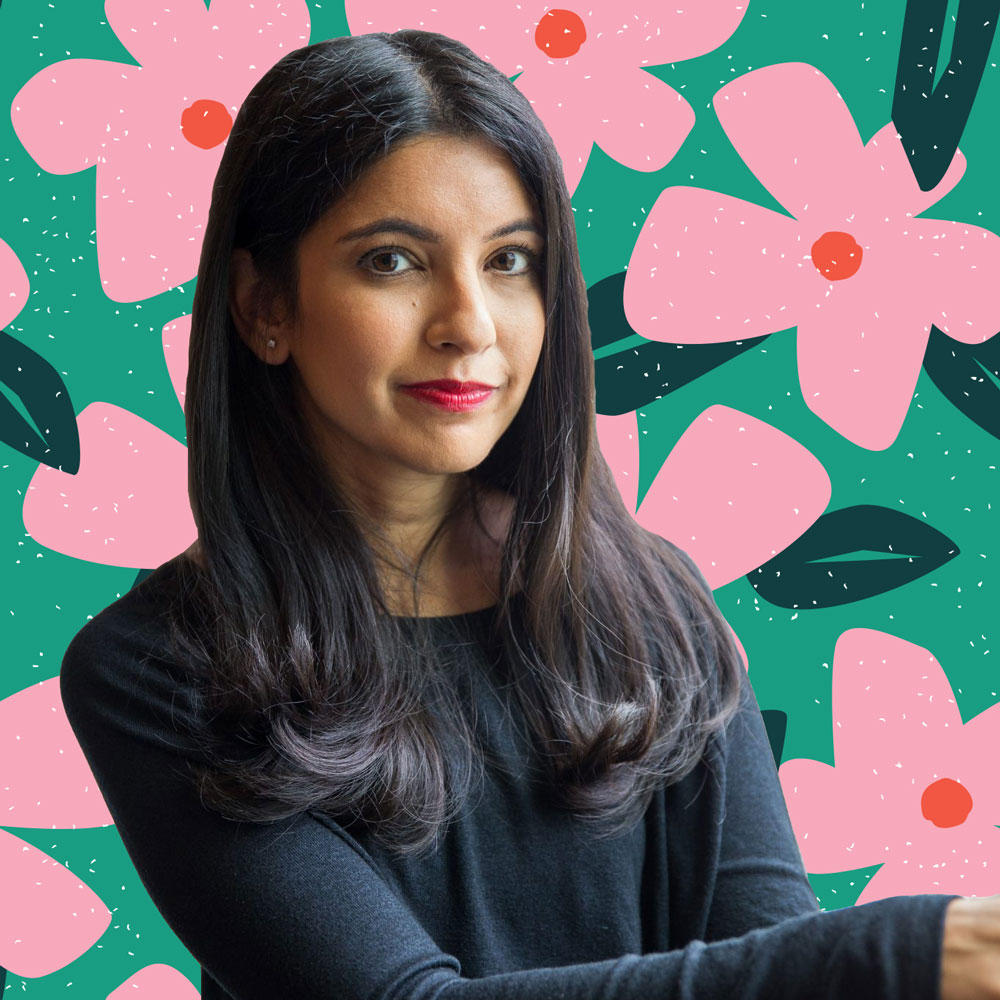
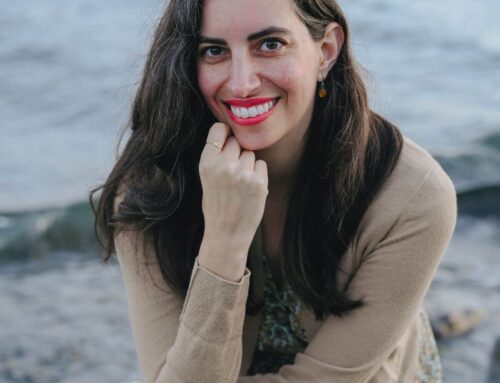
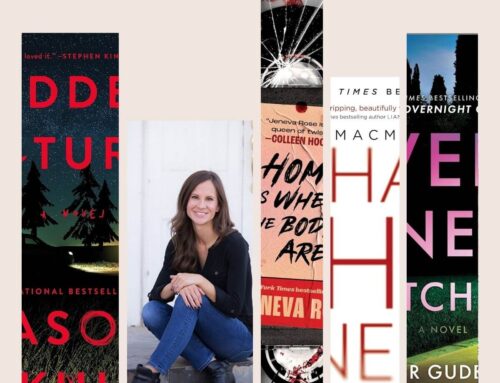
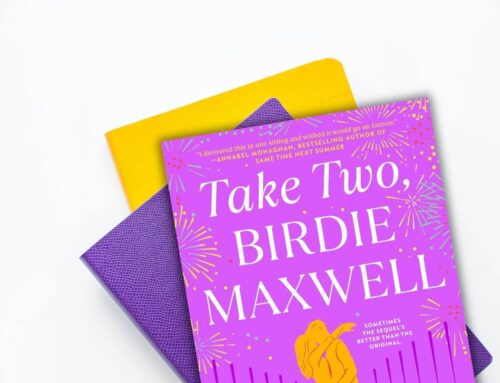

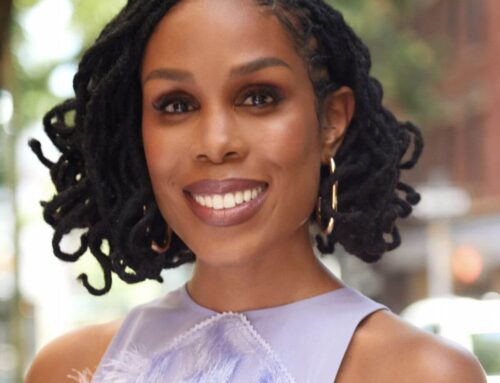
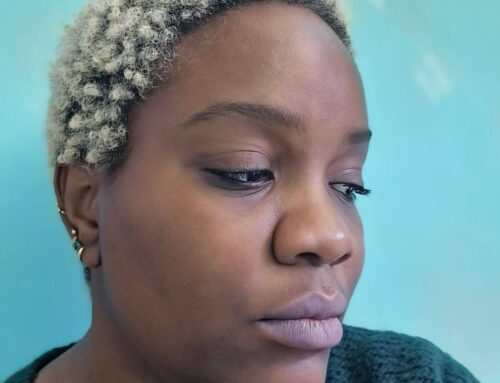
Leave A Comment